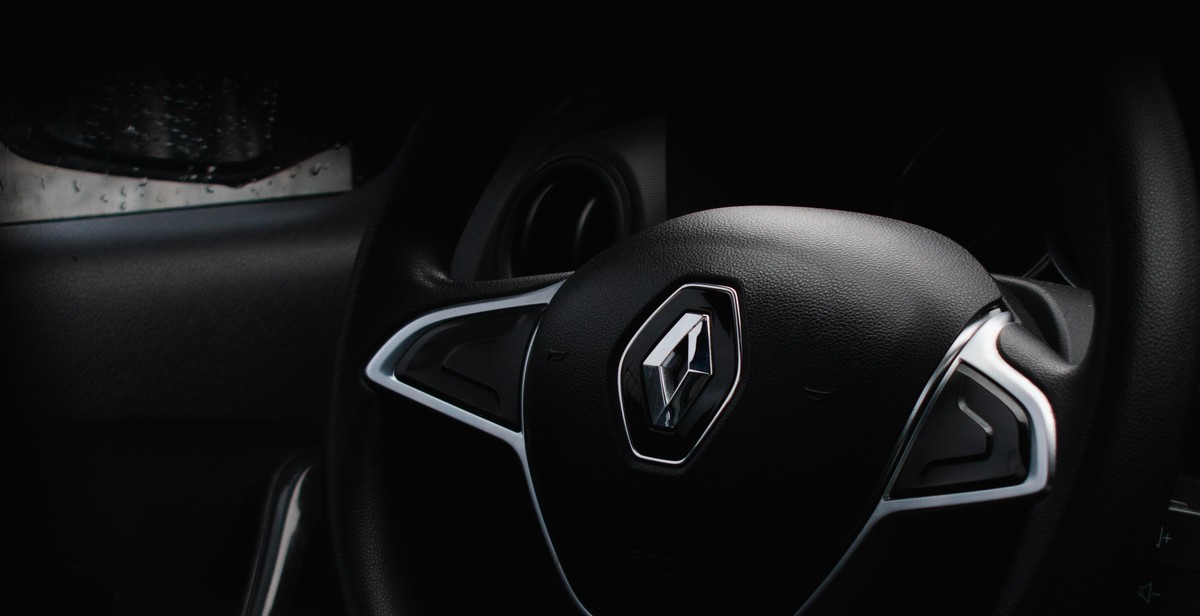Introduction
Choosing the right car can be a daunting task. With so many options available in the market, it is crucial to select a vehicle that fits your needs and budget. Whether you are a first-time car buyer or looking to upgrade your current ride, selecting the right car is essential.
The Importance of Selecting the Right Car
Buying a car is a significant investment, and it is essential to choose a vehicle that meets your requirements. The right car can make your daily commute comfortable and enjoyable, while the wrong car can be a source of frustration and stress.
Choosing the right car can also save you money in the long run. A car that fits your budget and needs can help you avoid unnecessary expenses, such as repairs and maintenance costs.
Factors to Consider When Selecting a Car
When selecting a car, it is essential to consider various factors, such as your budget, lifestyle, and driving needs. Some of the critical factors to consider include:
- Budget
- Car type
- Size and space
- Fuel efficiency
- Safety features
- Technology and entertainment features
By considering these factors, you can narrow down your options and select a car that meets your needs and budget.
Conclusion
Choosing the right car is crucial for your daily commute and long-term financial well-being. By considering various factors and doing your research, you can select a vehicle that fits your needs and budget.

Identifying Your Needs
When it comes to selecting the best car for your needs and budget, it is essential to first identify your lifestyle and driving needs. This will help you narrow down your options and make an informed decision.
Determining Your Lifestyle and Driving Needs
Consider your daily routine and how a car would fit into it. Do you have a long commute? Do you frequently travel long distances? Do you need a car for work purposes? Answering these questions can help you determine the type of car that would best suit your needs.
Assessing Your Daily Commute
Your daily commute is another important factor to consider when selecting a car. If you have a long commute, you may want to consider a car with good fuel efficiency. Alternatively, if you only use your car for short trips around town, you may be able to get away with a less fuel-efficient car.
Considering Your Family Size
If you have a family, you will need to consider their needs as well. A larger family will require a car with more seating and storage space. Additionally, if you have young children, you may want to consider a car with safety features such as airbags and child safety locks.
By identifying your lifestyle and driving needs, assessing your daily commute, and considering your family size, you can narrow down your options and select the best car for your needs and budget.

Establishing Your Budget
Before you start shopping for a car, it’s important to evaluate your finances and determine your car affordability. By doing so, you can avoid overspending and ensure that you can comfortably afford your car payments.
Evaluating Your Finances
The first step in establishing your budget is to evaluate your finances. This includes taking a close look at your income, expenses, and debt. You should also consider your savings and any other financial obligations you have, such as rent or mortgage payments.
It’s important to be realistic about your finances and to avoid stretching yourself too thin. Ideally, your car payments should not exceed 15% of your monthly income.
Determining Your Car Affordability
Once you have a clear understanding of your finances, you can determine your car affordability. This involves taking into account the monthly car payment, as well as other costs such as insurance, maintenance, and fuel.
When determining your car affordability, it’s important to consider your long-term financial goals. For example, if you’re saving for a down payment on a house, you may want to opt for a more affordable car to free up funds for your savings.
Calculating the Total Cost of Ownership
In addition to the purchase price and monthly payments, it’s important to calculate the total cost of ownership. This includes expenses such as insurance, maintenance, repairs, and fuel costs.
By calculating the total cost of ownership, you can get a better idea of the long-term costs associated with owning a particular car. This can help you make a more informed decision about which car is the best fit for your needs and budget.
| Expense | Cost |
|---|---|
| Monthly car payment | $XXX |
| Insurance | $XXX |
| Maintenance and repairs | $XXX |
| Fuel costs | $XXX |
| Total cost of ownership | $XXX |
By following these steps and carefully evaluating your finances, determining your car affordability, and calculating the total cost of ownership, you can make a more informed decision about which car is the best fit for your needs and budget.

Researching Your Options
When it comes to selecting the best car for your needs and budget, researching your options is crucial. Here are some key steps to take:
Exploring Different Car Models
Start by exploring different car models that meet your needs and fit your budget. Consider factors such as size, fuel efficiency, safety features, and overall style. Websites such as Car and Driver and Edmunds offer comprehensive reviews and comparisons of various car models, making it easier to narrow down your options.
Reading Car Reviews and Ratings
Once you have a list of potential car models, read car reviews and ratings from reputable sources. These reviews can give you a better understanding of the car’s performance, reliability, and overall value. Consumer Reports is a great source for unbiased car reviews and ratings.
Comparing Prices and Features
After narrowing down your options, compare prices and features among the car models you are considering. Use websites such as Kelley Blue Book and TrueCar to get an idea of the average prices for the cars you are interested in. Be sure to also compare the features included in each car, such as technology and safety features, to ensure you are getting the best value for your money.
| Website | Features |
|---|---|
| Car and Driver | Comprehensive car reviews and comparisons |
| Edmunds | Expert car reviews and pricing information |
| Consumer Reports | Unbiased car reviews and ratings |
| Kelley Blue Book | Car pricing and valuation information |
| TrueCar | Car pricing and comparison tools |
By following these steps and doing your research, you can select the best car for your needs and budget with confidence.

Test Driving and Inspecting
Once you have narrowed down your choices, it’s time to schedule test drives. Test driving a car is crucial to ensure that it meets your needs and feels comfortable to drive. It’s also an opportunity to inspect the car’s condition and check for safety features. Here are some important things to keep in mind:
Scheduling Test Drives
Before scheduling a test drive, make sure you have done your research on the car you are interested in. Check the dealer’s website or call ahead to confirm the availability of the car and schedule an appointment. This will ensure that the car is ready for you to test drive when you arrive.
Inspecting the Car’s Condition
During the test drive, take the time to inspect the car’s condition. Look for any signs of wear and tear, such as scratches or dents. Check the tires for any signs of damage or uneven wear. Open and close all doors, windows, and the trunk to ensure they function properly. Take note of any strange noises or vibrations while driving.
Checking for Safety Features
When inspecting the car, it’s important to check for safety features. Look for airbags, anti-lock brakes, and electronic stability control. Check that all safety features are in good working condition. If the car has a backup camera or blind-spot monitoring, test those features to ensure they work properly.
By taking the time to schedule test drives and inspect the cars you are interested in, you can be confident that you are selecting the best car for your needs and budget.

Negotiating and Purchasing
Once you have identified the car that meets your needs and budget, it’s time to start negotiating the price and terms of the purchase. Here are some steps to help you prepare for negotiations:
Preparing for negotiations
- Research the car’s market value to determine a fair price.
- Get pre-approved for a car loan to have financing in place.
- Consider additional costs such as taxes, registration fees, and insurance.
- Bring a copy of your credit report to show the dealer your creditworthiness.
Once you are prepared, it’s time to start negotiating.
Negotiating the price and terms
Start by making an initial offer that is lower than the asking price. Be prepared to negotiate back and forth until you reach a mutually agreed-upon price. Here are some tips:
- Stay calm and respectful during negotiations.
- Focus on the total cost of the car, not just the monthly payments.
- Be willing to walk away if the dealer is not willing to meet your price.
- Consider negotiating other terms such as warranty, maintenance, or financing options.
Once you have agreed on a price and terms, it’s time to finalize the purchase.
Finalizing the purchase
Before signing any paperwork, review it carefully to ensure that all terms and conditions are as agreed upon. Here are some things to look for:
- The final purchase price, including any taxes and fees.
- The interest rate and terms of the loan.
- The duration and coverage of any warranties or maintenance plans.
- The delivery date and any additional costs such as shipping or dealer fees.
Once you are satisfied with the terms, sign the paperwork and take possession of your new car. Congratulations on your purchase!

Conclusion
Choosing the best car for your needs and budget can be a daunting task, but with the right information and guidance, it can be an enjoyable and rewarding experience. In this article, we have highlighted some key points that you should consider when selecting a car.
Summary of Key Points
- Assess your needs and budget before making a decision.
- Consider the type of car that best suits your lifestyle.
- Research and compare different car models and brands.
- Take a test drive to get a feel for the car.
- Consider the car’s safety features and fuel efficiency.
- Factor in the cost of insurance, maintenance, and repairs.
- Consider buying a used car to save money.
By following these key points, you can make an informed decision that will meet your needs and budget. Remember, the best car for you is the one that meets your unique needs and preferences.
Get Professional Help
If you are still unsure about which car to choose, consider seeking professional help from a car dealer or mechanic. They can provide you with valuable advice and guidance that will help you make the right decision.
| Remember: | Choosing the right car requires careful consideration and research. With the right information and guidance, you can find a car that meets your needs and budget. |
|---|
